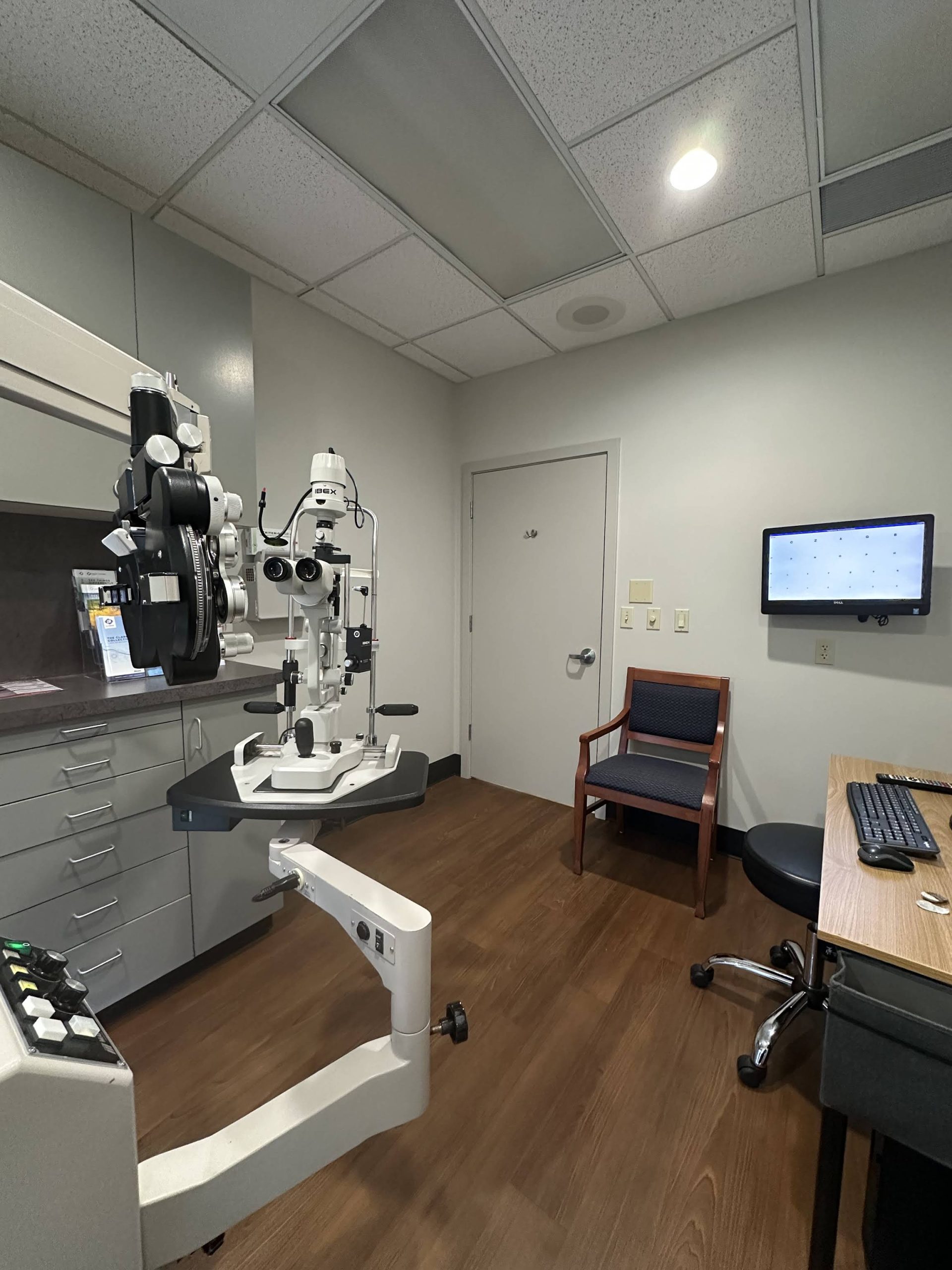 Finding the right ophthalmology specialist is crucial for maintaining optimal eye health. In Woodinville, WA, residents have access to a range of skilled professionals who are dedicated to providing comprehensive eye care. This article explores the importance of ophthalmology, the services offered by specialists in the area, and tips for selecting the right eye care provider.
Finding the right ophthalmology specialist is crucial for maintaining optimal eye health. In Woodinville, WA, residents have access to a range of skilled professionals who are dedicated to providing comprehensive eye care. This article explores the importance of ophthalmology, the services offered by specialists in the area, and tips for selecting the right eye care provider.
Understanding Ophthalmology
Ophthalmology is a branch of medicine that focuses on the diagnosis, treatment, and prevention of eye diseases and disorders. It encompasses a variety of conditions that can affect vision, including cataracts, glaucoma, macular degeneration, and diabetic retinopathy. An ophthalmologist is a medical doctor who specializes in eye care and can perform surgeries, prescribe medications, and offer vision rehabilitation. This field not only addresses the physical aspects of eye health but also emphasizes the emotional and psychological well-being of patients, as vision impairment can significantly impact quality of life.
The Importance of Regular Eye Exams
Regular eye exams are essential for maintaining eye health and preventing vision loss. Many eye conditions develop gradually and may not present noticeable symptoms until they have progressed significantly. By visiting an ophthalmology specialist regularly, individuals can catch potential issues early and receive timely treatment. Moreover, these exams can serve as a valuable opportunity for patients to discuss any concerns they may have regarding their vision or eye health, fostering a collaborative relationship between the patient and the ophthalmologist.
During an eye exam, the ophthalmologist will assess visual acuity, check for signs of eye disease, and evaluate overall eye health. This proactive approach not only helps preserve vision but also contributes to overall health, as some systemic diseases can be detected through eye examinations. For instance, conditions like hypertension and diabetes can manifest in the eyes, making routine eye exams a critical component of comprehensive healthcare. Additionally, advancements in technology have made eye exams more thorough and efficient, allowing for early detection of issues that may have previously gone unnoticed.
Common Eye Conditions Treated by Ophthalmologists
Ophthalmologists in Woodinville are equipped to handle a wide range of eye conditions. Some of the most common issues include:
- Cataracts: A clouding of the eye’s lens that can lead to blurred vision.
- Glaucoma: A group of eye diseases that damage the optic nerve, often associated with increased intraocular pressure.
- Macular Degeneration: A progressive condition that affects the central part of the retina, leading to vision loss.
- Diabetic Retinopathy: A complication of diabetes that affects the blood vessels in the retina.
Each of these conditions requires specialized care, and ophthalmologists have the training and tools necessary to provide effective treatment options. For example, cataract surgery is one of the most common procedures performed by ophthalmologists, utilizing advanced techniques such as phacoemulsification to restore clear vision. Similarly, glaucoma management may involve a combination of medication, laser treatments, and surgical interventions to lower intraocular pressure and protect the optic nerve. Furthermore, ongoing research in ophthalmology continues to yield innovative therapies and technologies, enhancing the ability of specialists to treat complex eye conditions and improve patient outcomes.
Services Offered by Ophthalmology Specialists
Ophthalmology specialists in Woodinville offer a variety of services designed to address the diverse needs of their patients. From routine eye exams to advanced surgical procedures, these professionals are committed to delivering high-quality care.
Comprehensive Eye Exams
A comprehensive eye exam is the foundation of effective eye care. During this examination, the ophthalmologist will evaluate visual acuity, check for refractive errors, and assess the overall health of the eyes. This may include tests for glaucoma, cataracts, and retinal diseases.
Patients are encouraged to share any concerns or symptoms they may be experiencing, as this information can help guide the examination process. Early detection of potential issues is key to successful treatment. Additionally, these exams often include a thorough review of the patient’s medical history and lifestyle factors, such as screen time and UV exposure, which can significantly impact eye health. By understanding the patient’s background, ophthalmologists can tailor their recommendations and interventions more effectively.
Advanced Surgical Procedures
In cases where medical management is insufficient, ophthalmologists are trained to perform various surgical procedures. Common surgeries include cataract extraction, laser treatment for glaucoma, and retinal detachment repair. These procedures are typically performed in outpatient settings, allowing patients to return home the same day.
Ophthalmologists utilize the latest technology and techniques to ensure the best possible outcomes for their patients. This commitment to innovation helps improve recovery times and enhance visual results. Furthermore, many practices now offer minimally invasive options, which can reduce discomfort and expedite healing. Patients are often provided with detailed pre-operative and post-operative care instructions to ensure a smooth recovery process, and follow-up appointments are scheduled to monitor progress and address any concerns that may arise.
Vision Rehabilitation and Low Vision Services
For individuals with significant vision loss, ophthalmology specialists offer vision rehabilitation services. These programs are designed to help patients adapt to their visual impairments and maintain independence in daily activities.
Low vision services may include the provision of specialized devices, training in the use of adaptive technology, and strategies for maximizing remaining vision. The goal is to empower patients to live fulfilling lives despite their visual challenges. Additionally, support groups and counseling services may be available to help patients cope with the emotional aspects of vision loss. By fostering a supportive environment, these specialists aim to enhance the quality of life for individuals facing visual impairments, helping them navigate their surroundings and engage in activities they enjoy with greater confidence and ease.
Choosing the Right Ophthalmology Specialist
Selecting the right ophthalmology specialist is an important decision that can significantly impact eye health. Here are some key factors to consider when making this choice:
Qualifications and Experience
When seeking an ophthalmologist, it is essential to consider their qualifications and experience. Look for board-certified specialists who have completed extensive training in ophthalmology. Additionally, inquire about their experience in treating specific eye conditions that may be relevant to your needs.
Reading reviews and testimonials from other patients can also provide insight into the specialist’s reputation and the quality of care they provide.
Technology and Facilities
The availability of advanced technology and modern facilities can greatly enhance the quality of care. Ophthalmology specialists who invest in state-of-the-art equipment are often better equipped to diagnose and treat complex eye conditions effectively.
During an initial consultation, patients should take note of the clinic’s environment and the professionalism of the staff. A welcoming and well-organized facility can contribute to a positive experience.
Communication and Comfort
Effective communication between the patient and the ophthalmologist is crucial for successful treatment. Patients should feel comfortable discussing their symptoms, concerns, and treatment options. A good ophthalmologist will take the time to explain diagnoses and procedures clearly, ensuring that patients are well-informed and involved in their care.
Additionally, consider the accessibility of the specialist. Proximity to home, availability of appointment times, and the ease of communication with the office staff can all influence the overall experience.
Conclusion
Ophthalmology specialists in Woodinville, WA, play a vital role in preserving and enhancing eye health for the community. With a focus on comprehensive care, advanced treatments, and patient-centered approaches, these professionals are dedicated to helping individuals maintain optimal vision.
Whether seeking routine eye exams, specialized treatments, or surgical interventions, residents of Woodinville can find qualified ophthalmologists ready to meet their needs. By prioritizing eye health and choosing the right specialist, individuals can enjoy a lifetime of clear vision and improved quality of life.
If you’re in Woodinville, WA, and looking for an ophthalmology specialist who can provide you with the highest level of service, look no further than Overlake EyeCare. Our commitment to your vision is unwavering, and we believe in the power of routine eye examinations to keep your vision crystal clear. Dr. Mary Coday’s expertise in cataract surgery and advanced intraocular lens technology ensures personalized care tailored to your unique needs. With our state-of-the-art Lenstar technology for precise measurements and a wide range of intraocular lenses, we’re equipped to enhance your vision with precision and care. Don’t wait to take charge of your eye health. Contact Us Today to schedule your appointment and experience the clarity you deserve.

